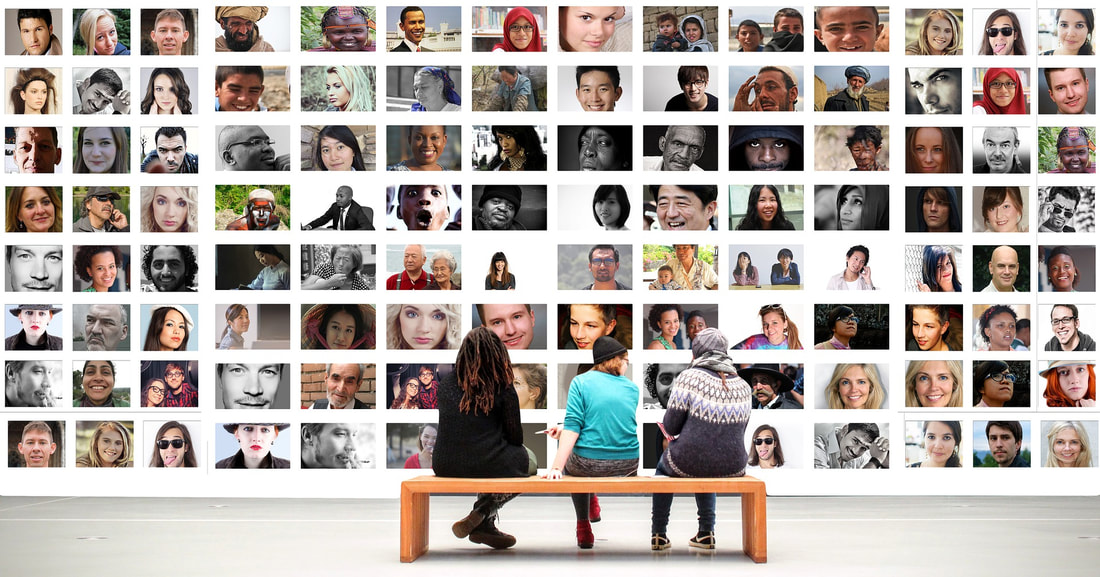We all like to label ourselves. And we all definitely like to label others. It’s comforting, in the same way we might organise our pantry or medicine cabinet. We know for instance which friend to go to for advice, who to get a reality check from or where to simply get a hug.
We like to think of ourselves and others as being a “something” person. Kind, diligent, industrious – or maybe lazy, self-centred or impatient. These labels may have become attached to us as a result of an incident. Like when you went wild at a party – or spoke out against something wrong or simply got angry. And then they become imbedded - and just maybe we subconsciously model our lives on the label we have inherited . . .
And then confirmation bias sets in, where we live our lives and interact with others under a set of expectations. That allows us to make quicker decisions, avoid harm and generally live our lives more efficiently. But what if that label is simply misleading and possibly (and probably unintentionally) harming? And, more importantly, what can we do about it . . . ?
Maybe the first step to understanding others is to first understand ourselves with a fresh set of eyes. Carl Jung was an early 20th century psychotherapist and psychiatrist who created the field of analytical psychology. He said . . .
"Until you make the unconscious conscious, it will direct your life and you will call it fate"
And with that in mind, here are some useful (and free) sources to help you discover (or rediscover) your personality. They are all survey type models, and with any survey they only work if you are honest in how you answer.
We like to think of ourselves and others as being a “something” person. Kind, diligent, industrious – or maybe lazy, self-centred or impatient. These labels may have become attached to us as a result of an incident. Like when you went wild at a party – or spoke out against something wrong or simply got angry. And then they become imbedded - and just maybe we subconsciously model our lives on the label we have inherited . . .
And then confirmation bias sets in, where we live our lives and interact with others under a set of expectations. That allows us to make quicker decisions, avoid harm and generally live our lives more efficiently. But what if that label is simply misleading and possibly (and probably unintentionally) harming? And, more importantly, what can we do about it . . . ?
Maybe the first step to understanding others is to first understand ourselves with a fresh set of eyes. Carl Jung was an early 20th century psychotherapist and psychiatrist who created the field of analytical psychology. He said . . .
"Until you make the unconscious conscious, it will direct your life and you will call it fate"
And with that in mind, here are some useful (and free) sources to help you discover (or rediscover) your personality. They are all survey type models, and with any survey they only work if you are honest in how you answer.
Neris Personality Test
Take the “Neris” free personality test at https://www.16personalities.com/. It’s based on a well-regarded model called Myer’s Briggs which in turn is based on the thinking of Carl Jung (quoted earlier in this article). The Neris test expands on the Myers Briggs thinking and incorporates what is known as the Big Five Personality Traits.
By taking this test you can find out if you are an architect (an imaginative and strategic thinker with a plan for everything), a mediator (kind, altruistic and always willing to help a good cause) or one 14 other personality types.
The Riso-Hudson Enneagram Type Indicator (RHETI)
An enneagram defines nine personality types (sometimes called "enneatypes"), which are represented by the points of a geometric figure which indicate connections between the types.
Basically you have to take the test to find out which one of the nine personality types you are. Are you a reformer (rational and idealistic), an artist (intuitive and reserved) or a peacemaker (easy going and accommodating)? Go to https://www.9types.com/rheti/index.php for a free sampler where you can complete 36 out of the 144 questions. For the full test go to https://www.enneagraminstitute.com/ where you will be charged a relatively small amount.
Feeling these two tests haven’t quite hit the mark? Then try the Oxford Happiness Questionnaire. It was developed by Michael Argyle and Peter Hills of Oxford Brookes University, and originally published in 2002. If are interested in the scholarly paper go here where you will gain some understanding how the survey was developed. If however you are after a more user friendly version, the UK Guardian has produced one here that you can answer and immediately generate your score.
When taking any of these tests, you need to:
When you have your results, it might be interesting to ask yourself how you feel. Was there anything in the results that surprised you? Are you disappointed? Pleasantly surprised? And again – why . . . ?
And finally – if you have taken the test and self-reflected on what you have learned, congratulations. Understanding what makes us tick is vital to making positive change. It’s tempting I know to jump to the action side of things. But until you really understand how you are feeling now, designing and working towards a “future you” risks missing something fundamentally important.
Take the “Neris” free personality test at https://www.16personalities.com/. It’s based on a well-regarded model called Myer’s Briggs which in turn is based on the thinking of Carl Jung (quoted earlier in this article). The Neris test expands on the Myers Briggs thinking and incorporates what is known as the Big Five Personality Traits.
By taking this test you can find out if you are an architect (an imaginative and strategic thinker with a plan for everything), a mediator (kind, altruistic and always willing to help a good cause) or one 14 other personality types.
The Riso-Hudson Enneagram Type Indicator (RHETI)
An enneagram defines nine personality types (sometimes called "enneatypes"), which are represented by the points of a geometric figure which indicate connections between the types.
Basically you have to take the test to find out which one of the nine personality types you are. Are you a reformer (rational and idealistic), an artist (intuitive and reserved) or a peacemaker (easy going and accommodating)? Go to https://www.9types.com/rheti/index.php for a free sampler where you can complete 36 out of the 144 questions. For the full test go to https://www.enneagraminstitute.com/ where you will be charged a relatively small amount.
Feeling these two tests haven’t quite hit the mark? Then try the Oxford Happiness Questionnaire. It was developed by Michael Argyle and Peter Hills of Oxford Brookes University, and originally published in 2002. If are interested in the scholarly paper go here where you will gain some understanding how the survey was developed. If however you are after a more user friendly version, the UK Guardian has produced one here that you can answer and immediately generate your score.
When taking any of these tests, you need to:
- Set aside some time when you won’t be distracted;
- Complete all the questions;
- Try to avoid neutral answers;
- Be honest – put down what you honestly feel to be true, not what you would like others to see you as; and
- Value being instinctive over being analytical when thinking about your answers – this will help you not to get stuck.
When you have your results, it might be interesting to ask yourself how you feel. Was there anything in the results that surprised you? Are you disappointed? Pleasantly surprised? And again – why . . . ?
And finally – if you have taken the test and self-reflected on what you have learned, congratulations. Understanding what makes us tick is vital to making positive change. It’s tempting I know to jump to the action side of things. But until you really understand how you are feeling now, designing and working towards a “future you” risks missing something fundamentally important.

